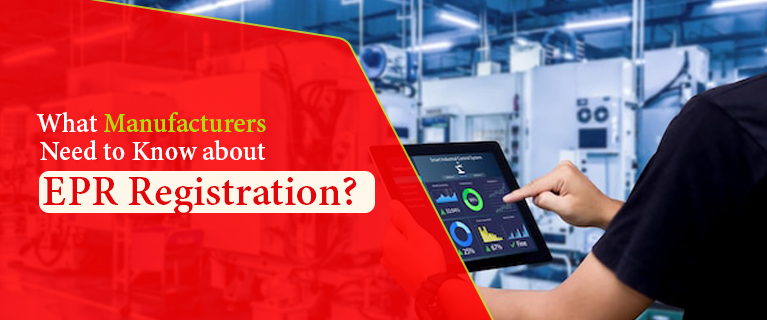Simplified Steps To Implement EPR Certification
A policy known as extended producer responsibility (EPR) holds manufacturers accountable for the disposal of post-consumer trash of their products. It aims to encourage producers to design and manage products in a way that reduces their environmental impact and promotes recycling and proper disposal.
Acquiring an Extended Producer Responsibility (EPR) Certificate offers several significant benefits for both producers and the environment. Firstly, it showcases a producer's commitment to sustainable practices and environmental stewardship. By adhering to EPR principles and meeting recycling and recovery targets, producers demonstrate their dedication to minimizing the environmental impact of their products throughout their lifecycle.
Secondly, an EPR Certificate enhances a producer's brand reputation and market competitiveness. Consumers are increasingly conscious of the environmental footprint of the products they purchase, and they value companies that actively contribute to waste reduction and responsible disposal. Holding an EPR Certificate signals to consumers that a producer is taking proactive steps to address environmental concerns, which can lead to increased customer loyalty and positive brand perception.
Here are the simplified steps to implement an Extended Producer Responsibility (EPR) Certification in India:
1. Policy Framework Development:
Government authorities or regulatory bodies work on developing a comprehensive policy framework for implementing EPR. This involves identifying target products, setting recycling and recovery targets, and defining roles and responsibilities of stakeholders.
2. Engagement of Stakeholders:
Stakeholders including producers, manufacturers, retailers, waste management agencies, and environmental organizations are engaged in discussions to gather input and ensure the policy's effectiveness.
3. Product Identification:
Determine the specific products that fall under the EPR Certification. These products are usually ones that have a significant environmental impact, are difficult to recycle, or generate substantial post-consumer waste.
4. Setting Collection and Recycling Targets:
Define the recycling and recovery targets that producers need to achieve for their products. These targets can include specific percentages of collection, recycling rates, and waste reduction goals.
5. Producer Responsibility Plans:
Producers develop and submit detailed plans outlining how they will meet the EPR targets. These plans typically include strategies for product design, collection systems, recycling infrastructure, consumer awareness campaigns, and reporting mechanisms.
6. Regulatory Approvals:
The submitted producer responsibility plans are reviewed and approved by the regulatory authority. Plans should demonstrate feasibility, cost-effectiveness, and alignment with the overall EPR policy goals.
7. Implementation and Monitoring:
Producers start implementing their responsibility plans, which may involve changes to product design for easier recycling, establishing collection centers, and collaborating with waste management entities. Regular monitoring ensures that targets are being met.
8. Consumer Awareness Campaigns:
Educational campaigns are conducted to inform consumers about proper disposal, recycling, and the importance of participating in recycling initiatives.
9. Reporting and Compliance:
Producers are required to submit regular reports on their progress, including data on collection, recycling, and recovery rates. Regulatory bodies ensure compliance with EPR obligations.
10. Review and Revision:
Periodically, the EPR Certification is reviewed to assess its effectiveness in meeting environmental goals. Adjustments to targets, regulations, or the list of covered products may be made based on the program's performance.
11. Expanding and Scaling Up:
Successful EPR programs can serve as models for expanding the approach to additional products or sectors, promoting sustainable practices across various industries.
An EPR Certificate ensures compliance with regulatory requirements. Many jurisdictions have implemented EPR regulations to hold producers accountable for managing their products' waste. Acquiring the certificate not only demonstrates adherence to these regulations but also helps producers avoid potential penalties or legal issues associated with non-compliance. Overall, an EPR Certificate serves as a tangible testament to a producer's commitment to sustainability, consumer trust, and regulatory compliance, fostering a more responsible and environmentally conscious business landscape.
Read Also This - Best EPR License Consultants in India


Comments
Post a Comment